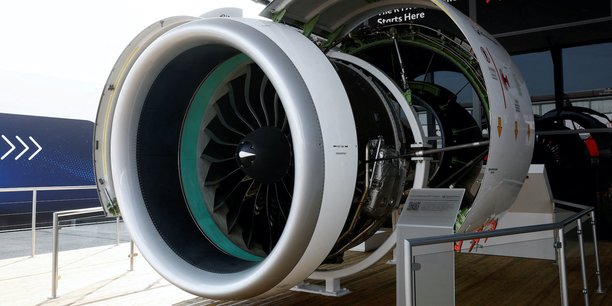
Companies are having problems with Pratt & Whitney engines
The recovery of air transport, already made difficult by post-Covid tensions, will have to deal with a new technical problem. “Big part” Aircraft engine manufacturer Pratt & Whitney has announced that the PW1100G-JM engines – fitted to the Airbus 320neo aircraft – will undergo an inspection expected within nine to twelve months. The problem is due to a defect in a metal powder used in the manufacture of high-pressure turbine disks and manufactured within RTX (formerly Raytheon), the parent company of Pratt & Whitney. In the near future, there is no risk, just the risk of premature corrosion, he assured the group on July 25.
1,200 engines were affected
This contamination is likely to affect 1,200 engines produced between the fourth quarter of 2015 and the third quarter of 2021, out of about 3,000 engines manufactured in total. “We will work with Pratt & Whitney and our customers to implement all required inspection plans.”European aircraft manufacturer Airbus responded.
The FAA told AFP this week that it was “Aware of the issue and in contact with Pratt & Whitney and affected US operators.”claiming that “We will ensure that all appropriate measures are taken.”.
However, almost no details have been filtered out. Three weeks after the announcement, airlines were still waiting for the completion of their winter shifts, which had already been disrupted by shortages among their suppliers and problems associated with staff shortages in the aviation sector.
The inspection is scheduled for mid-September
Inspection of about 200 engines is scheduled to begin in mid-September, for an indefinite hiatus at this stage. “The downtime period will depend mainly on the availability of maintenance spaces, which are not widely available at the present time.”Michele Merlozzo of the specialist company AIR explained to AFP. According to him, to speed up the return to service, it will be possible to replace the engines that are likely to cause this anomaly with new engines but “The production rate is already very tense.” Due to display problems.
In the batch recalled from September, there are as many as thirteen engines from US low-cost carrier Spirit Airlines. a result? “Seven NEO aircraft will be withdrawn from service.”His boss Ted Christie warned. “The plan is to start removing them after Labor Day.”He added that the company will consider these devices unavailable until the end of the year, which is equivalent to Labor Day, which is celebrated on September 4 of this year in the United States and Canada.
Spirit has the largest number of aircraft equipped with this engine in the United States, and the largest number of engines manufactured between 2015 and 2021. Its fleet of A320neo aircraft currently amounts to about 80 aircraft, according to its website. “This is a disappointing and disappointing new development.”“, lamented Ted Christie, noting that several aircraft had already been forced to remain in hangars due to separate mechanical problems. “We will have the equivalent of at least ten aircraft out of service for most of 2024.”And it is expected. Even if Pratt pledged compensation “Total”, “We do not have details or timetable for these compensation.” He specifies.
Spare parts shortage
For its part, all eighteen aircraft belonging to Hawaiian Regional Airlines were delivered during the critical period, which raised the concern of its president, Peter Ingram, recalling the recent freeze in movement for long periods due to a shortage of engine spare parts. With the announcement of RTX, the parent company of Pratt & Whitney, “We will consider whether we need to take measures in our planning to limit the impact of the aircraft shortage.”He explains that he is optimistic because many parts have changed over the years during successive interviews.
JetBlue was also told it was part of the September batch, without further details, its CFO Ursula Hurley said, explaining that the group’s forecasts for this year did not include the impact of these installations.
According to several media outlets, German companies Lufthansa, American Delta, Indian IndiGo, Air New Zealand, Hungary’s Wizz Air and Mexico’s Volaris were also affected, on a smaller scale.
For Michele Merlozzo, this issue should not encourage Airbus – which also sources engines from the consortium for its A320neo – to part ways with Pratt because “It seems very isolated.”.
(With AFP)

“Organizer. Social media geek. General communicator. Bacon scholar. Proud pop culture trailblazer.”
